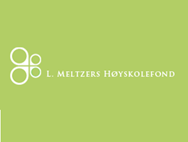Human Agency and Global Challenges: Re-Centering Social Change in Archaeology
15th to 17th of September 2022

Main content
How does change happen? What role do human relationships and decisions play? Are societal changes only generated by external and uncontrollable large-scale events that predict certain types of inevitable trajectories, or do they on the contrary result from small-scale decisions and interactions between multiple and different human and non-human actors? This conference offers a platform for scholars of all theoretical persuasions to discuss these questions together.
Venue: Auditorium, Bryggen museum
Please find the conference booklet at the bottom of this webpage.
Preliminary timetable:
Thursday 15th September
13.00 Start of conference, welcome
13.15 - 16.15 Block 1 - Resilience and adaptation
Much change also happens slowly, sometimes in spite of considerable social or environmental challenges. What strategies can societies develop to counter change? Under which circumstances are balanced relations (between people and with the environment) achieved? Can we characterise how societies adapt to new and potentially challenging landscapes?
Keynote lecture: Mads Dengsø Jessen (Copenhagen): "Resilience and Breakpoints - Exploring Linkages between societal, agricultural and climatic changes in Iron Age Denmark".
Speakers:
- Caroline Heitz (Oxford/Bern): Theorizing Resilience and Vulnerability for Social Archaeology – First Thoughts
- Nicholas Schmuck (Fairbanks): Human Population Expansions into Unfamiliar Landscapes
- Astrid J. Nyland, James Walker, Håvard Kilhavn (Stavanger): Vulnerable vs. resilient coastal societies in Mesolithic Norway? Or how to discover the social impacts of the Storegga tsunami 8200 years ago
- Victor Lundström, Knut Andreas Bergsvik (Bergen): Continuity and change at the Mesolithic-Neolithic transition: Insights gained from prehistoric demography and cultural evolution
- Rosie R. Bishop, Darren R. Gröcke, Mike J. Church (Stavanger and Durham): Resilience and adaptation of cultivation strategies in Neolithic Scotland
- Zarko Tankosic, Paschalis Zafeiriadis (Bergen and Athens): Embracing insularity: Cycl(ad)ic social changes in Final Neolithic Greece
16.30-18.00 Keynote lectures
Kristina Sessa (Ohio State University): The concept of “collapse” in historical perspective: meanings and material evidence
Marianne Hem Eriksen (Leicester University): Change, politics and the body: Intimate histories on multiple scales
Followed by wine reception
Friday 16th September
08.30 - 12.00 Block 2 - Resilience and adaptation
Speakers:
- Arne Anderson Stamnes (Trondheim): The PastCoast-project. Interdisciplinary methodical approaches to the study of resilience in prehistoric marine coastal environments
- Christina Leverkus (Holmestrand): Grave Developments – a chronological review of social changes at Borre
- Dagfinn Skre (Oslo): Tribes and kingship. The constitution and cohesion of ethnic groups and their role in the emergence of Scandinavian kingship AD 200–500
- Marie Ødegaard (Stavanger): To arms! Viking war and military preparedness
- Simon Malmberg (Bergen): The city of Rome as a case study in urban resilience, vulnerability and sustainability
- Christina Videbech (Bergen): How the dove saved the eagle’s nest. Christian activities and the resilience of the Forum Romanum during the 4th to the 6th century
- Sarah Kerr (Aarhus): Resilience and Change in Late Medieval Archaeology
- Meinrad Pohl (Bergen): Medieval tuff stone churches: Indicators of continuity in worship and response to change?
- Sigrid Samset Mygland (Bergen): Change or continuity? Women and gender at medieval Bryggen
- Gitte Hansen (Bergen): Destruction as creation. Land development in the deserted 10th-17th century town of Borgund, Norway
Lunch
13.30 - 17.30 Block 3 – Trajectories to/from inequality
How close are we to defining the factors that contribute to (un)equal social relations? What is the role of worldviews, social and ritual traditions and technological innovations in altering power balances? Is a decrease in hierarchical relations always a “collapse” and is it possible to write narratives of resistance?
Keynote lecture: Leonardo García Sanjuán, Marta Cintas Peña (Sevilla): Dawning Inequalities. Social Dissymmetries, Big Men (and Women) and the Sources of Power in Late Neolithic and Copper Age Iberia (c. 4200-2200 cal BC).
Speakers:
- Charlotte Brysting Damm (Tromsø): Being fluid, dividual and multiple: why stratification is hard amongst small-scale foragers
- Graeme Warren (Dublin): The Mesolithic of Ireland: an outcome of choice, not loss
- Axel Mjærum, Anette Sand-Erikssen (Oslo): Late Neolithic and Early Bronze Age agricultural developments in the Oslo Fjord area, Norway
- Hallvard Bruvoll (Oslo): Towards fine-grained temporal dynamics of social inequality in the Early Neolithic
- Daniela Hofmann (Bergen), Marton Szilágyi,Gisela Grupe, Franziska Schreil, Anna Perutka, Britta Ramminger, Markus Helfert, Nicole Kegler-Graiewski: King for a day? Mobility and hierarchy at the enclosure of Riedling, southern Bavaria
- Finn Schreiber (Berlin): Rise and decline in burial diversity and wealth in the Middle and Late Bronze Age southern Urals
- Andreas Ropeid Sæbø (Oslo): Hundorp: the agency of a chief or the anxiety of the commons?
- Kjetil Loftsgarden (Oslo): The wonderful 7th century
- Lars Erik Gjerpe (Oslo): Viking Age Vestfold – a society against the state?
- Heidi Lund Berg (Bergen): Locking and social complexity: how locks and keys participated in social transformations in the Scandinavian Iron Age
Followed by speakers’ dinner
Saturday 17th September
08.45 - 12.00 Block 4 – Rapid change
Rapid change, in the form of climatic events, migrations and demographic collapse is making a come-back in our explanations. But is rapid change always catastrophic? How good are our methods at identifying timing and speed of changes and their correlation with other factors? How do individuals and societies deal with or bring about quick transformation?
Keynote lecture: Bryan Ward-Perkins (Oxford): Rapid change, slower change: Britain and Italy at the end of the Roman empire.
Speakers:
- Pir Hoebe, Stijn Arnoldussen, Hans Peeters (Groningen): Data before the deluge: northwest European hunter-gatherer responses to Late Glacial and Early Holocene climate fluctuation and abrupt environmental change
- Detlef Gronenborn (Mainz): The social component of change: integrative and disintegrative phases in societal dynamics
- Ingar M. Gundersen (Oslo): Iron Age vulnerability. An analytical approach to the Fimbulwinter hypothesis
- Solveig Chaudesaigues-Clausen (Bergen): Traditions in transformation – The Neolithisation process in southern Scandinavia, viewed from the perspective of the osseous industry
- Svein Vatsvåg Nielsen (Oslo): Rebels without a cause? Re-visiting old and new approaches to the de-Neolithisation in southern Norway (c. 3000 BCE)
- Krisztián Oross, Tibor Marton, János Jakucs (Budapest): Community dynamics in 6th millennium cal BC western Hungary
- Erika Weiberg, Martin Finné (Uppsala): Land use expansion in Late Bronze Age Greece – a success story(?)
- Ramona Harrison, Árni Daníel Júlíusson (Bergen, Reykjavik): The mechanisms of social change in medieval Iceland: A regional case study in Two Valleys
Lunch
13.30 - 14.15 Block 5 – Rapid change
Speakers:
- Lech Czerniak (Gdańsk): “Sickle man” graves and their role in building a new identity at the turn of the sixth and the fifth millennium BC in Lesser Poland
- Ralf Gleser (Münster): Materiality of remembrance: reference to the past as a factor of resilience in times of rapid change – An example based on unusual funerary practices in a late Celtic necropolis in the Hunsrück region
14.45 - 17.15 Block 6 – Scales of transformation
Archaeological research has always focused on different scales of social action, yet it is rare that multiple scales are brought together. How do the same processes differ when we look at them from a micro or macro perspective? What can big data models gain from site or regional narratives (and vice versa)? And how can complex multi-scalar models best be modelled and presented?
Keynote lecture: Liv Nilsson Stutz (Linnaeus University): A return to the human scale. Recentering human action and human responsibility in the era of big data.
Speakers:
- Ben Raffield (Uppsala): Broken to pieces, merging together: exploring multi-scalar narratives of societal transformation
- Jutta Kneisel, Stefanie Schaefer-Di Maida, Jan Piet Brozio (Kiel): Scales of transformation during the Neolithic and Bronze Age in northern Germany
- Barbro Dahl (Stavanger): Evidence of change in burials: Bronze Age and Iron Age burial practices at Hålandsmarka in Rogaland
- Jan Turek, Petr Krištuf (Prague, Pilsen): The tradition and palimpsest of Neolithic ancestral monuments in the ritual landscapes of Bohemia
- Laurine Albris (Copenhagen): Sacral topography and social configurations on an Iron Age island
- John Robb (Cambridge): Human social choices and evolutionary consequences: generalists, specialists and the shape of history
Conference ends
This conference is arranged by the research group Humans and materiality at UiB and generously sponsored by the Meltzer Research Fund and takes place in collaboration with Bymuseet i Bergen.


